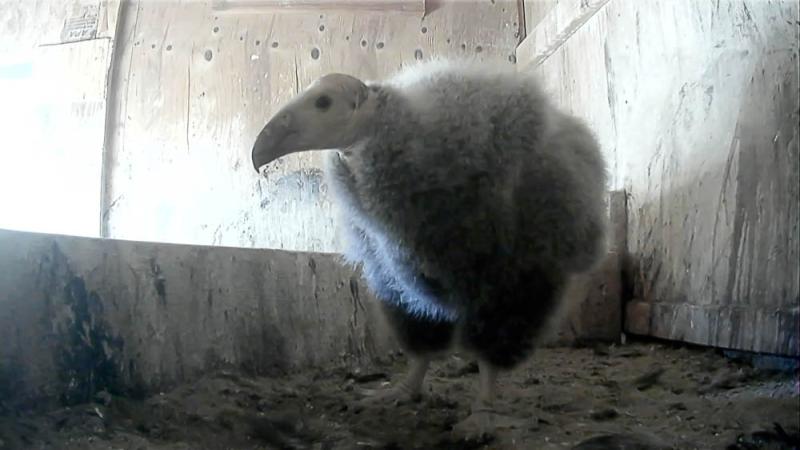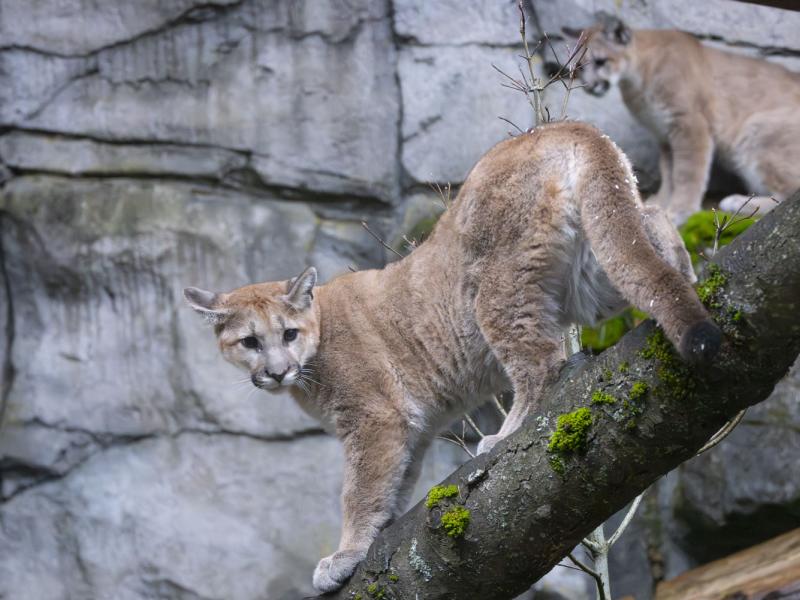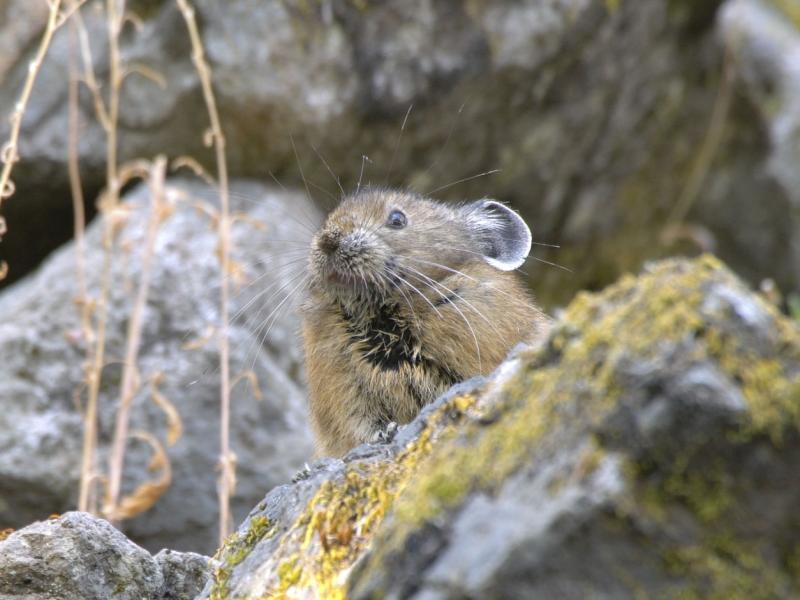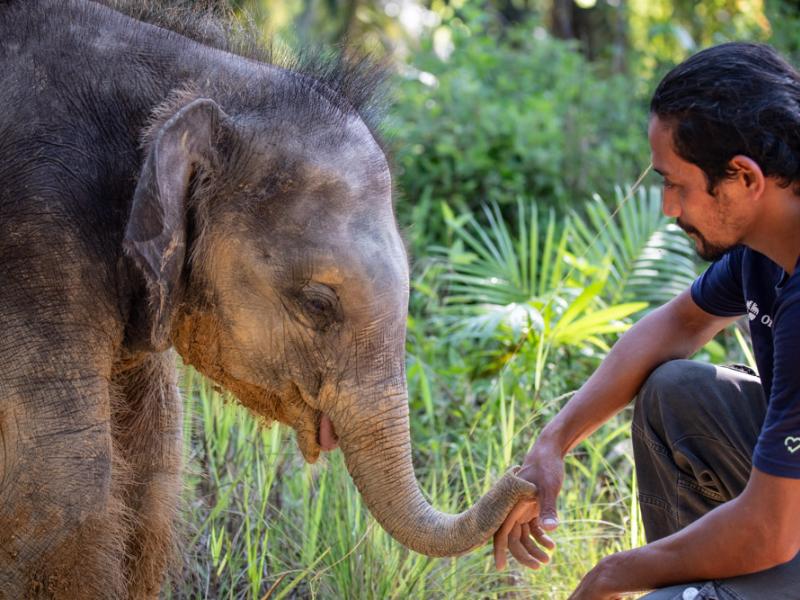Last condor chick of the season hatches at zoo offsite facility

Eight healthy fluffballs offer more hope for this critically endangered species
It's been an eggcellent season for California condors.
The eighth California condor chick hatched last month at Oregon Zoo's Jonsson Center for Wildlife Conservation, wrapping up another successful year — and marking another significant step forward in the recovery of this critically endangered species. The fluffy newborn chicks range in age from 4 to 10 weeks old, and all are healthy and thriving.
The youngest chick, known as 975, is being kept warm under brooding parents 432 and 378.
"We're thrilled to have eight healthy new chicks this season," said Kelli Walker, the zoo's lead condor keeper. "All of the young birds and their parents are doing well."
The Jonsson Center, home base for the zoo's condor recovery efforts, is located in rural Clackamas County on Metro-owned open land. The remoteness of the facility minimizes the exposure of young condors to people, thus increasing the chances for zoo-hatched birds to survive and breed in the wild.
This year's condor chicks will be under the watchful wings of their parents for at least eight months before moving to the Jonsson Center's pre-release pens for about a year and a half. Eventually, the birds will travel to a wild release site to join free-flying condors in California, Arizona or Baja Mexico.
With so few of the birds left in the world, each new condor is vitally important to the species' survival, according to Walker.
"If you think about it," she said, "the eight chicks being raised here right now make up more than 1 percent of all the California condors on the planet."
The California condor was one of the original animals included on the 1973 Endangered Species Act and is classified as critically endangered. In 1982, only 22 individuals remained in the wild and by 1987, the last condors were brought into human care in an attempt to save the species from extinction. Thanks to breeding programs like the Oregon Zoo's, the world's California condor population now totals more than 479 birds, most of which are flying free.
No. 975 is the 79th chick to hatch at the Jonsson Center since 2003, and 57 Oregon Zoo–reared birds have gone out to field pens for release. In addition, several eggs laid by Oregon Zoo condors have been placed in wild nests to hatch.
The Oregon Zoo's condor recovery efforts take place at the Jonsson Center for Wildlife Conservation, located in rural Clackamas County on Metro-owned open land. The remoteness of the facility minimizes the exposure of young condors to people, increasing the chances for captive-hatched birds to survive and breed in the wild. California condor breeding programs are also operated at San Diego Zoo's Wild Animal Park, the Los Angeles Zoo and the Peregrine Fund's World Center for Birds of Prey in Idaho.
More News

Rescued cougar cubs are venturing out
A pair of orphaned cougar cubs, rescued and brought to the zoo by Washington Department of Fish and Wildlife staff in November, have begun exploring their outdoor habitat.April 17, 2025

Zoo seeks pika watchers for summer season
The Oregon Zoo is recruiting volunteers for Cascades Pika Watch.April 15, 2025

Zoo convenes action for imperiled elephants
Sabah government representatives joined conservation NGOs, local communities, palm oil producers, and tourism operators this week in the fight to save the world’s smallest elephants from extinction.April 11, 2025

